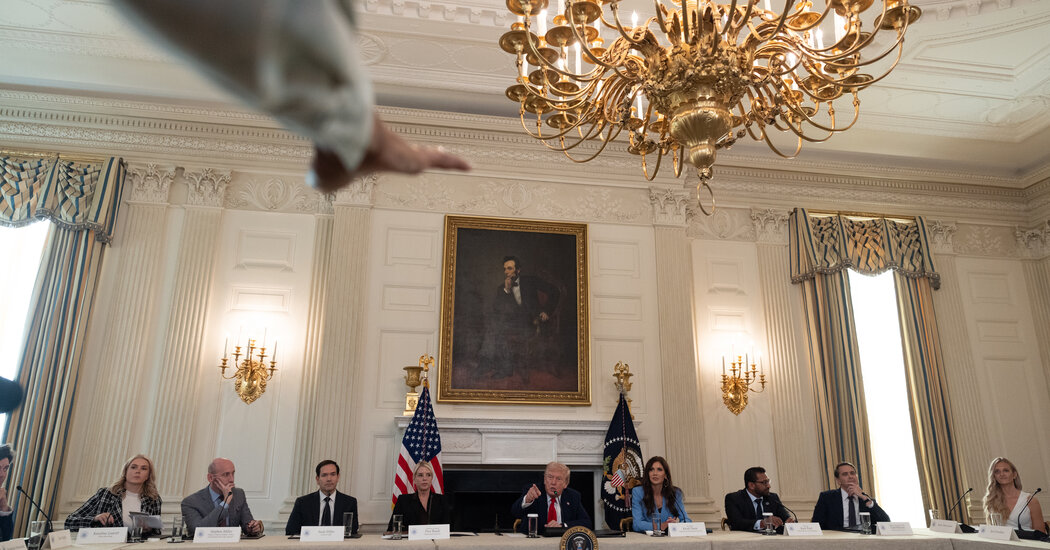
President Trump said Wednesday that negotiations over a cease-fire in Gaza and the release of Israeli hostages being held by Hamas were “going very well,” and raised the possibility he may head to the Mideast over the weekend, presumably to mark a cease-fire and release of hostages.
His enthusiasm was bolstered late in the afternoon, during a public event in the East Room, when he was handed a note by Secretary of State Marco Rubio suggesting that negotiators in Egypt were “very close” — the words were underlined — and asked Mr. Trump to “approve a Truth Social post soon so you can announce deal first.”
The president’s comments, combined with Mr. Rubio’s note, caught by the long lens of an Associated Press photographer, were the most definitive suggestion yet that the two-year-long conflict may be about to pause, if not end. It began with the Oct. 7, 2023, terrorist attack on Israel, killing roughly 1,100 Israelis, and Israel has since claimed tens of thousands of Palestinian lives in Gaza. But the president did not provide specifics about the negotiations, where he is represented by his special envoy, Steve Witkoff, and by his son-in-law, Jared Kushner.
“I may go there,” he said, first suggesting he could leave on Sunday, and immediately correcting himself to suggest his departure could be Saturday evening.
“I’ll be going to Egypt,” he said, referring to the country where the negotiations between Israel and Hamas are underway, coaxed along by Arab states and the United States, which is represented by Mr. Trump’s special envoy, Steve Witkoff, and his son-in-law, Jared Kushner.
But he added he would be “making the rounds,’’ which seemed to suggest he might visit Israel, to celebrate the release of the remaining living hostages, and the bodies of the dead; their freedom is supposed to be the first step in the president’s 20-point plan. Asked if he would go into ruins of Gaza — a place where it would be hard to secure his safety — he said “I may do that.”
Mr. Trump has made no secret of the fact that he is lobbying for the Nobel Peace Prize, which was won by three sitting American presidents, Theodore Roosevelt, Woodrow Wilson and Barack Obama. (Jimmy Carter won one in 2002, decades after he left the White House.)
While he has cited more than a half-dozen conflicts in which he claims to have been the driving force for peace agreements, or cessations of conflict, he would be able to make a good case that he was the driving force of a Gaza agreement.
His 20-point plan was both more comprehensive and better considered than many of his early foreign policy initiatives. “This cease-fire and hostage release — if it happens — only came to fruition because of Trump’s willingness to pressure Prime Minister Netanyahu,’’ said Aaron David Miller of the Carnegie Endowment for International Peace, who has often been critical of Mr. Trump’s starts and stops in the Mideast. “No president — Republican or Democrat — has ever come down harder on an Israeli prime minister on issues so critically important to his politics or his country’s security interests.”